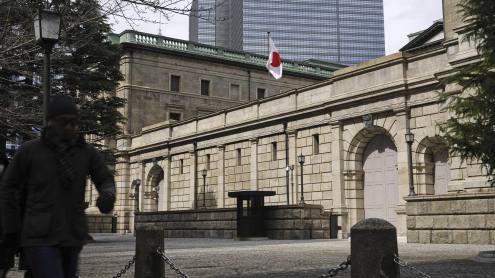The Chinese government may be forced to accept bank privatisation by stealth as private corporate cash injections in city commercial banks become more common. By Louise do Rosario in Shanghai.
Privatisation of state banks is a sensitive topic in China. While private capital has already made its way into manufacturing, retailing, publishing and numerous other industries, it has limited presence in the state-dominated sector of banking.
The state remains the major shareholder of all leading banks, even though it has sold small stakes of them through the stock market. Among the top banks, only one is privately owned: the China Minsheng Banking Corporation. It was established in 1996 as an experiment and a political symbol of banking reform.
For other private companies lobbying for a bank licence, the state remains suspicious. It has memories of how private banks played havoc with the country’s public finances before the communist regime nationalised them in the 1950s. It also remembers the chaotic situation of the early 1990s when privately run credit associations went bankrupt and it had to use public money to compensate depositors.
Winds of change
The government, however, will soon have to forget the past and embrace a growing trend: the penetration of private capital in city commercial banks (CCBs), small banks owned by local city governments. In the past two years, at least half a dozen private conglomerates have quietly injected capital into CCBs, holding a majority stake in some and sitting on the banks’ board of directors.
“There is still a lot of resistance from many people but the central government is willing to have a few experiments of private banks,” says Dr Fan Gang, head of the Beijing-based National Economic Research Institute, who has been a leading advocate of private banks for years.
Economists such as Dr Fan argue that private banks help to redress a major financial problem in China: the shortage of bank credits to smaller and private firms. They note that while the private sector contributes more than 60% of China’s GDP, it accounts for only 30% of the country’s total bank loans. That is because state banks are willing to lend only to state companies – a long-standing practice that is based on the belief that the government will always bail out companies it owns but not private ones.
Private banks, by their nature and size, will be more willing to lend to the private companies, economists argue. “The bigger state banks have withdrawn from counties and towns. Private banks are much needed to fill the void, to provide financing to local small to medium-sized firms,” says Dr Fan.
Natural attraction
The country’s 111 CCBs are a natural entry point for private investors because they are small and flexible but growing fast. They were formed from merging the country’s estimated 5000 troubled urban credit co-operatives (UCCs) a decade ago. UCCs were small credit unions funded by local governments, state firms and some private investors.
Much of the latest buyout of CCBs has taken place in Zhejiang, the province famous for its many private enterprises. Leading CCBs in Wenzhou, Hangzhou, Xiaoxing, Ningbo, Taizhou and the province’s other affluent cities, have been approached by private investors keen to establish a foothold in banking.
Cash is welcome
City governments welcome the injection of fresh capital to their cash-strapped CCBs. To make the CCBs more attractive to outside investors, local governments often transfer the bad debts to a local asset management company. With an improved balance sheet, a CCB will increase the number of shares and bring in new outside investors.
In Wenzhou, for example, Wenzhou CCB, will soon become a de facto private bank with private investors holding more than 80% of the shares. The privatisation began in April last year, with an increase of its capital base from Rmb290m ($35m) to nearly Rmb500m, and a transfer of Rmb700m of its bad debt to a government-backed asset management company. The share of the Wenzhou government and other state companies will be reduced from 52% to around 10% when the share placement is completed this year, industry sources say. “We are waiting for the final go-ahead from the government,” says Jiang Xiaojiang, a spokesman for the bank.
In Hangzhou, an historic city two hours by train from Shanghai, the Hangzhou CCB underwent the same exercise. Its capital is to be doubled to Rmb1bn, while Rmb1.8bn of its bad debt will be transferred to an asset management company. The city government’s stake will be diluted from 70% to 30%, while the new private partners from Beijing, Shanghai and Zhejiang will own more than half of the bank, according to industry sources. “There has been overwhelming positive response from private investors. We hope the transaction will be completed sometime this year,” says a bank spokesman.
In the cases of Wenzhou and Hangzhou, the identities of the investors have been kept secret because the central government has yet to give its final go-ahead to the restructuring. Industry sources say such investors are usually successful private business groups that already have some investments in financial sectors such as securities and insurance.
Elsewhere in China, one private conglomerate, the Delong Group in the north-western province of Xinjiang, has been less successful in staying away from the headlines in its acquisitions of CCBs. The group, whose founding family is estimated to have Rmb1.6bn of assets, was ranked the 27th richest in China by Forbes magazine in 2002. According to the Beijing-based Caijing magazine, the group has invested up to Rmb370m in four CCBs nationwide, in exchange for stakes ranging from 9% to 40% in the individual CCBs.
Foreign interest
Even foreign investors are interested in investing in CCBs. The International Finance Corporation (IFC), the investment arm of the World Bank with the professed mission to promote private enterprise, has acquired stakes in three CCBs since 1999: the Bank of Shanghai, Nanjing CCB of Jiangsu province and Xian CCB of Shaanxi. Earlier, it bought 5% of the Minsheng Bank. And HSBC is a minor shareholder of Bank of Shanghai, while Scotiabank of Canada has invested in Xian CCB.
Asset restructuring has been taking place nationwide with strong local enthusiasm but the response from the People’s Bank of China (PBoC) has been lukewarm. It has yet to issue detailed regulations on the entry and exit of private capital in banking.
Private investors, meanwhile, have been drumming up their own support with the help of sympathetic academics and local officials. Xu Dianqing, a Beijing University professor and founder of Xian-based Great Wall Finance Research Institute, is an avid supporter of private banks. He has organised seminars and submitted numerous detailed reports to the central bank on the merits of setting up private banks in China. He suggests that a private bank should have a registered capital of Rmb1bn and that no single investor should hold more than 8% of the shares. He is also calling for a deposit insurance scheme to be set up so that Chinese will feel comfortable putting money with smaller banks.
Adopting some of Mr Xu’s ideas, 12 private business groups in Chongqing, China’s most populous municipality, have been lobbying since early 2001 for a new bank to be set up with a registered capital of Rmb1bn.
CCBs themselves have been soliciting outside investors: in April 2002, eight CCBs in Zhejiang issued a joint public statement, calling on private companies to invest in them.
Reluctant regulators
On all these activities, the central bank and the newly formed Banking Regulatory Commission have commented very little. Analysts say the regulators are unconvinced that conditions are ripe for banking to be opened up fully to private investors.
“Private investors are using the government’s credibility to make money. Banking is the most profitable business in China,” says Bai Shichun, governor of the PBoC’s Jinan branch in eastern China. In a recent interview, he warned that in cases of mismanagement, the government would always be left holding the bag.
This was the case in September 2001, when there was a run on two privately owned UCCs in Taizhou, Zhejiang. Tailong, the biggest local UCC, suffered depositor withdrawals totalling Rmb200m in two days before the situation stabilised. A smaller UCC was less fortunate and was forced to close after a week of tight liquidity, despite Taizhou government support of Rmb45m. Tailong UCC, having survived the financial crisis, is now applying to be upgraded to be a fully fledged bank.











